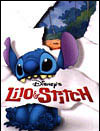| |

PUCCINI
ADVANCES THE CAUSE OF DEMOCRACY & HUMAN RIGHTS
When the Declaration of the Rights of Man and Citizens
was issued in Paris in 1789, the scope of applicability was
not limited to France. The declaration was intended to apply
to the entire world, or at least to Europe. When Napoleon
Bonaparte conscripted Frenchmen into the army, the objective
was to topple the monarchs of Europe, who had been responsible
for frivolous wars and heinous denials of human rights, in
order to install democratic republics in their place. Among
the countries eventually liberated was Italy, where a Roman
Republic was established when he was merely commander of the
French army in Italy. After overthrowing the Directory and
establishing the Consulate in 1799, Napoleon defeated the
Austrians in 1800 at the Battle of Marengo, Italy. With this
historical background, Victorien Sardou published a play in
1887 about an opera singer in love with a painter named Mario
Cavaradossi. Mario in turn seeks to aid a Republican, Angelotti,
who escapes from prison and thus eludes the Baron Scarpia,
the counterrevolutionary chief of police who is purging Rome
of all dissident Republicans. Giacomo Puccini, while working
on La Bohème, was invited by librettist Ferdinando
Fontana to make an opera out of the play, Tosca,
about fictional events taking place in June 1800, and his
masterpiece premiered in 1900. Although there have been several
films of Tosca over the years, most
recently in the 1970s, French film producer Daniel Toscan
du Plantier followed up his production of Madama
Butterfly (1995) and Carmen
(2001) by entrusting the adaptation of Tosca to director Benoît
Jacquot, whose version has now been released commercially.
Those expecting a pure operatic version should be informed
that the performing singers and orchestra are occasionally
presented in black and white, and the actors lip sync the
singing. The actual sites in the opera are reproduced in some
cases through antiqued photographs, with sets erected as background
for the actors. MH
HAWAIIAN
CULTURE DOMESTICATES A MONSTER OR TWO
 The
Hawaiian word ohana means "family," a family
in which "nobody gets left out or forgotten," according
to the animated tale Lilo & Stitch,
codirected by Dean Deblois and Chris Sanders. In the prologue
to the film, naughty Six-Two-Six (voiced by codirector Chris
Sanders) has been banished from the galaxy, but while being
escorted to a galactic Siberia, Six-Two-Six escapes. The
Hawaiian word ohana means "family," a family
in which "nobody gets left out or forgotten," according
to the animated tale Lilo & Stitch,
codirected by Dean Deblois and Chris Sanders. In the prologue
to the film, naughty Six-Two-Six (voiced by codirector Chris
Sanders) has been banished from the galaxy, but while being
escorted to a galactic Siberia, Six-Two-Six escapes.
|
The Grand Councilwoman (voiced by Zoe Caldwell) then orders
Jumba (voiced by David Ogden Stiers), a galactic prisoner
due to his creation of Six-Two-Six, to capture the monster
in exchange for his freedom, but Pleakley (voiced by Kevin
McDonald) goes along to assist. Meanwhile, orphaned five-year-old
Lilo (voiced by Daveigh Chase) is at a hula school on the
island of Kaua`i. Rather than waiting for her big sister Nani
(voiced by Tia Carrere) to drive her home from school, she
walks home and locks herself inside. When Nani finds that
she is not waiting at school, she rushes home. But along comes
a social worker, Cobra Bubbles (voiced by Ving Rhames), for
a home visit, which proves to be a disaster, so the social
worker warns Nani that Lilo may have to be removed from her
guardianship. That night Six-Two-Six lands not far from Lilo's
home and ends up at a pet shop. The next day Nani allows Lilo
to adopt any pet in the store, and Lilo chooses Six-Two-Six,
claiming that it is a dog; for $2, Lilo gets a legal document
indicating ownership (rather than adoption)! and she names
the creature "Stitch." Although Six-Two-Six was
created to destroy, Lilo is amused and likes Stitch. However,
its misconduct not only costs Nani her job but no employer
will hire her after seeing Stitch's destructive antics. Next,
Jumba and Pleakley fly to the island (though the island of
Hawai`i, according to their map!) in order to capture Six-Two-Six
but bungle the assignment. The Grand Councilwoman then arrives
to reclaim Six-Two-Six, but Lilo presents a legal document
indicating ownership, so she demurs. Then a turnaround occurs,
the inevitable happy ending, with Stitch adopting the aloha
spirit and rebuilding the house that it earlier destroyed;
meanwhile, Nani gets a job due to a tip from her surfer friend
David Kawena (voiced by Jason Scott Lee), and the social worker
goes away. Native Hawaiian activists, of course, are loudly
criticizing the film as not depicting the true Hawaiian culture.
Lilo and Nani, however, bicker with each other in a manner
quite similar to the complaining activists. David, more stereotypically,
is a firedancer with a sweet personality who is content to
surf in his spare time. There are many scenes of white tourists
enjoying the beach and other attractions, including David's
firedancing. And, to remind adults of an earlier era when
Elvis Presley favored the Islands in Blue Hawaii
(1961), his music is featured throughout. Although the thrice-repeated
definition of ohana is clearly the main message of the film,
the lesson on Native Hawaiian culture is obviously oversimplified
and rather syrupy. MH
|
|